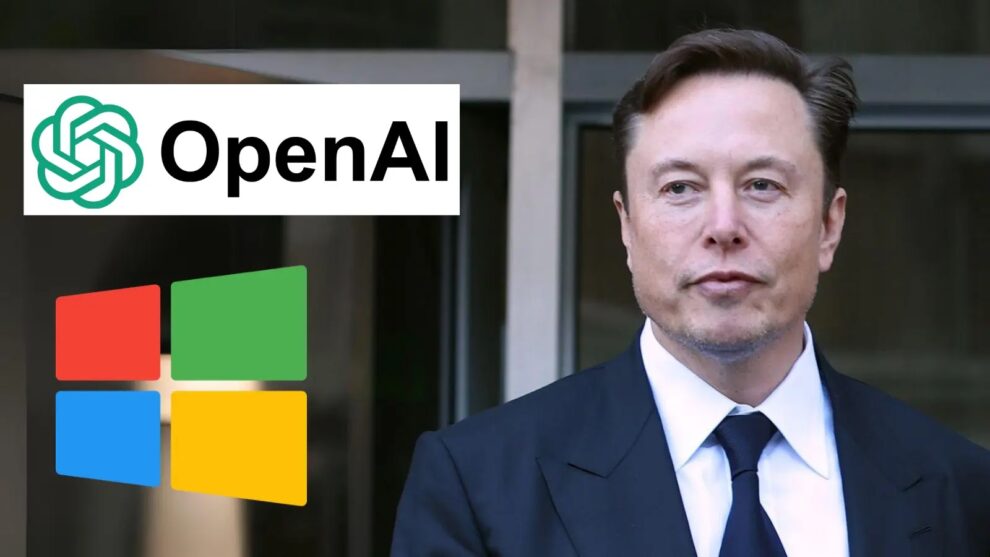Elon Musk has expanded his lawsuit to include Microsoft and Reid Hoffman, while taking aim at what he describes as the company’s “lavish compensation” practices. The amended complaint, which now targets OpenAI’s $14 billion partnership with Microsoft, has brought to light the extraordinary compensation packages that have become a hallmark of the artificial intelligence industry’s talent war.
At the heart of Musk’s allegations lies a striking claim: OpenAI is reportedly on track to spend $1.5 billion on personnel costs for just 1,500 employees, a figure that translates to an average of $1 million per employee. This unprecedented level of compensation, according to Musk’s legal team, represents an anticompetitive practice designed to corner the market on generative AI talent.
The compensation data, while not publicly reported due to OpenAI’s private company status, paints a remarkable picture of the AI industry’s current state. According to compensation tracking platform Levels.fyi, OpenAI’s total yearly compensation packages range from $144,275 for technical writers to an astounding $1,338,750 for software engineers. The median total compensation at the company stands at $534,197, significantly higher than industry standards.
The disparity becomes even more apparent when examining software engineering roles specifically. While the median total compensation for software engineers in the San Francisco Bay Area hovers around $257,500, OpenAI’s software engineers command a median compensation of $810,000. This stark difference highlights the premium placed on AI expertise in today’s tech landscape.
Further insights from Comprehensive.io, a compensation benchmarking firm, reveal that base salaries for engineering roles at OpenAI typically range from $200,000 to $370,000, excluding stock awards and bonuses. More specialized positions command even higher base salaries, ranging from $300,000 to $450,000, according to the firm’s co-founder Roger Lee.
These compensation figures emerge against the backdrop of Musk’s complex history with OpenAI. As a co-founder in 2015, Musk has since become one of the organization’s most vocal critics, departing from its board in 2018 and subsequently launching his own AI venture, xAI. His latest legal action, which follows a briefly withdrawn lawsuit filed in March, accuses OpenAI of betraying its founding principles by prioritizing commercial interests over its original mission of developing beneficial AI for humanity.
The lawsuit’s expansion to include Microsoft and Hoffman, a Microsoft board member and former OpenAI board member, underscores the growing tensions in the AI industry. Microsoft’s substantial investment in OpenAI, including a $10 billion commitment announced last year, has become a focal point of Musk’s allegations of monopolistic behavior in the AI sector.
The compensation controversy highlights a broader trend in the AI industry, where companies have largely maintained high pay scales and job security even as the broader tech sector has faced widespread layoffs. This disparity reflects the intense competition for AI talent and the strategic importance companies place on developing advanced AI capabilities.
OpenAI’s evolution from its nonprofit origins to its current “capped-profit” model, announced in 2019, and its recent move toward a for-profit governance structure, adds another layer of complexity to the dispute. These organizational changes, combined with the Microsoft partnership and high compensation practices, form the basis of Musk’s argument that the company has strayed from its founding mission.
The legal battle has broader implications for the AI industry’s future. If Musk’s allegations of anticompetitive practices are proven, it could lead to increased scrutiny of compensation practices and partnerships within the AI sector. The case also raises questions about the balance between maintaining competitive compensation to attract top talent and ensuring healthy competition in the rapidly evolving AI marketplace.
Neither OpenAI, Microsoft, nor Hoffman have immediately responded to requests for comment on the amended lawsuit. However, OpenAI previously dismissed Musk’s earlier lawsuit as “incoherent” and “contradictory,” suggesting a contentious legal battle ahead.
As the artificial intelligence industry continues to evolve and expand, the outcome of this legal dispute could have far-reaching consequences for how AI companies structure their compensation packages and form strategic partnerships. The case also highlights the ongoing tension between the idealistic goals of beneficial AI development and the commercial realities of building and maintaining cutting-edge technology companies.
The revelation of OpenAI’s compensation structure through this legal battle provides a rare glimpse into the financial workings of one of the world’s most influential AI companies, illustrating both the high stakes and high costs of maintaining leadership in the artificial intelligence race. As the case proceeds, it will likely continue to shed light on the complex interplay between talent acquisition, corporate strategy, and the ethical considerations that shape the future of artificial intelligence development.
















Add Comment